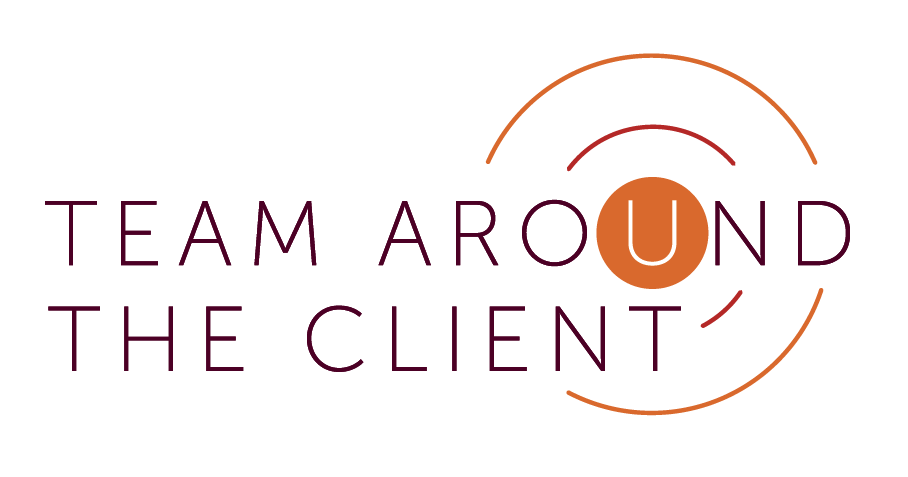Building a support team
A review of the Ahead Together Conference
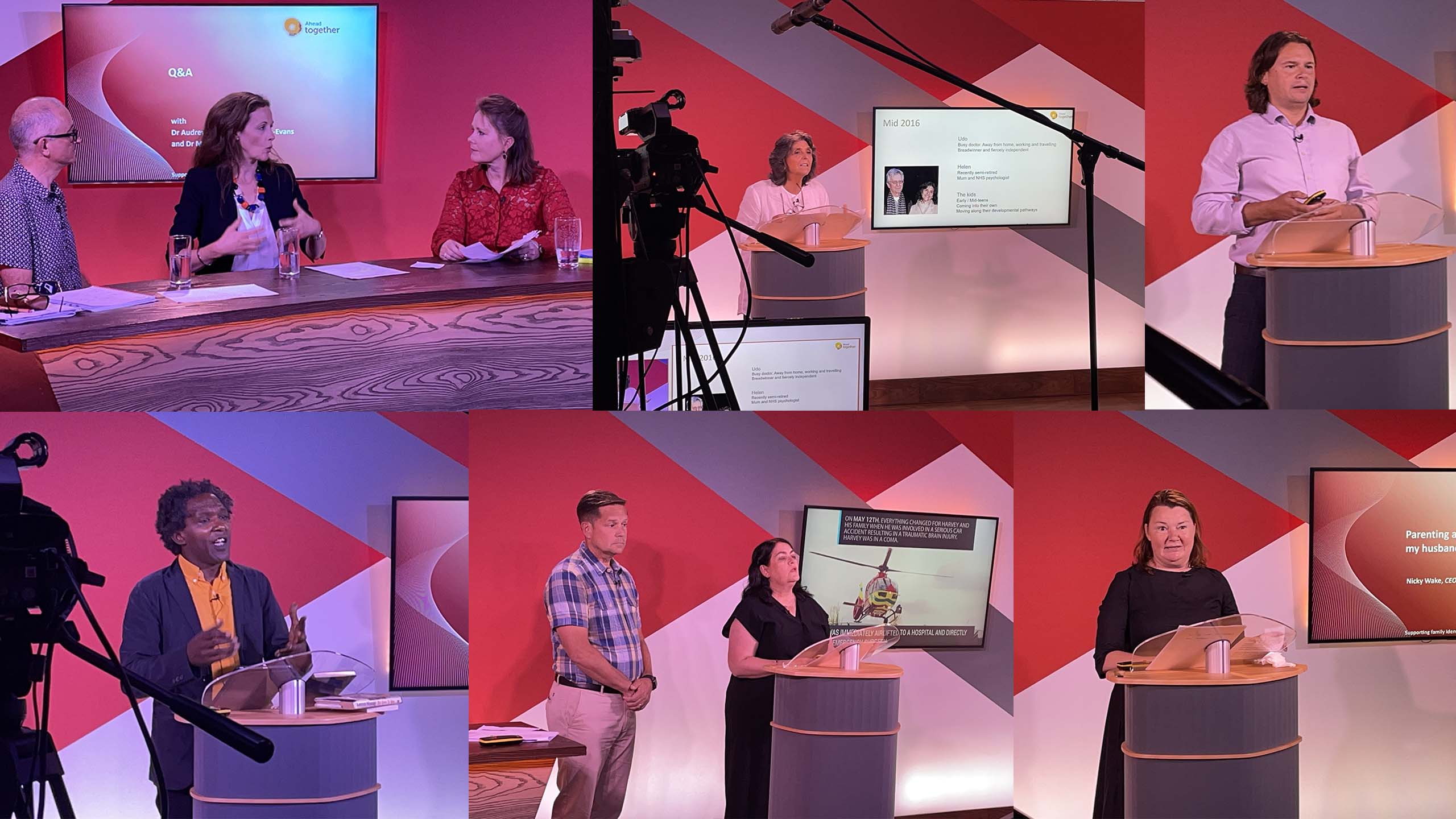

In 2019 I wrote a rave review of the first Ahead Together conference, held on a glorious sunny September day in a quintessential Oxford building, surrounded by people committed to improving the family experience of life after brain injury, from the perspectives of health service staff, case managers, personal injury law, third sector organisations, academic researchers, and – most notably - family members themselves.
It was undoubtedly the most affecting conference I’ve attended and I admit when I saw the announcement that it was set to return in virtual format, I had slightly mixed feelings - a little bit fed up of online conferences, I thought, wouldn’t it be better, particularly for this one, to wait until it could be done ‘properly’? At the same time, I was aware that if anyone could pull off a first-class online alternative, it was the team, led by Dr Audrey Daisley and Tracy Norris-Evans, that had made the first Ahead Together so special. So, I signed up. After a long wait, including a decision to postpone due to second wave Covid pressures, 9th September finally rolled around. Despite the high expectations, the event did not disappoint.
The conference theme was supporting family identity after brain injury, and Lemn Sissay, OBE - poet, author of the bestselling memoir My Name Is Why, Chancellor of the University of Manchester, recipient of several honorary doctorates as well as the PEN Pinter Prize - was an inspired choice for the keynote address. In speaking about his childhood, being fostered long term against his mother’s wishes, and subsequently separated from his foster family, to the ‘care’ of the local authority, Dr Sissay addressed the intertwined nature of family, identity, and memory - and the lifelong impact of having family and memories taken away. He showed a powerful and deeply considered empathy for people with brain injury through the first public reading of his poem ‘Find me’, exploring with characteristic lyricism, wit and emotion the possible internal experience of the injury itself.
Several speakers presented in pairs, an interesting choice that was effective in conveying the sense of collaboration and connection that is important in families and in brain injury rehab. Dr Charlotte Whiffin and Dr Fergus Gracey spoke about their work on family identity, recently published in a meta-synthesis of qualitative studies on this topic (Whiffin, Gracey & Ellis-Hill, 2021).
Dr Ndidi Boakye and Tracy Norris-Evans spoke on the importance of cultural identity in working with families after brain injury, from clinical and legal perspectives. Both illustrated the potential dangers that can arise from ‘othering’ in such relationships, alongside the potential rewards to be gained from working hard to understand cultural identity and incorporate it within that work.
"attendees come away from an Ahead Together conference with a sense of connection, shared goals, and a sharper vision for the future"
Dr Giles Yeates and Nicola Cale spoke on negotiating, with parents, the sexual identities and needs of young adults with brain injury, from neuropsychological and case management perspectives. Again, this attested to the value of braving ‘difficult’ conversations. Dr Audrey Daisley and Trevor Greenaway shared their experience of a strengths-based approach in supporting the process of redefining identity as a father after his son’s brain injury, with particular value in tracking the evolving, non-linear nature of the process over time, and the value of support at different stages.
Dr Helen Kennerley, renowned expert in cognitive behavioural therapy, spoke about her experience of shifting identities after her husband - equally renowned neurologist in neurorehabilitation Professor Udo Kischka - suffered two strokes. As experts in neuro-rehabilitation and psychological adaptation respectively, now also having expertise by experience, they have a unique perspective and they have written about this in a wonderful book (Kennerley & Kischka, 2020 – and see our review if you would like more information before you buy).
Nicky Wake, a returning speaker, reflected on how she is adapting to the identity of a widow and single parent following the death from Covid-19 of her husband Andy, early in the pandemic, and three years after his catastrophic brain injury. Nicky's talk was delivered with such wit and honesty (I’m sure I wasn’t alone in feeling a bit like I was having a conversation with an old friend), her deceptively simple advice for professionals not to judge families for decisions you may not understand, and statement that grief in response to Andy’s injury hasn’t diminished that experienced in response to his death, take on a special and lasting resonance. It also highlighted the increased difficulties families have experienced as a result of the pandemic and its impact on services and on daily life.
The day concluded with Charlie Whiffin, Senior Lecturer at the University of Derby, announcing the launch of Anchor Point, a special interest group focussed on families after brain injury. Do visit their homepage on the UKABIF website to find out more.
"The day was ably, thoughtfully, and entertainingly chaired by Dr Audrey Daisley, Tracy Norris-Evans, and Dr Mark Holloway"
The day was ably, thoughtfully, and entertainingly chaired by Dr Audrey Daisley, Tracy Norris-Evans, and Dr Mark Holloway. Dr Rachel Tams did a sterling job of moderating the online chat and ensuring even the most last-minute questions reached the speakers in time to be addressed. The behind the scenes team at RWK Goodman also have much to be proud of - the ‘production values’ were Netflix-esque and it was one of very few online events to suffer no perceptible technical hitches, maximising the impact of the speakers’ stories. I got the real sense that everyone was doing their best work, and the results were well worth it.
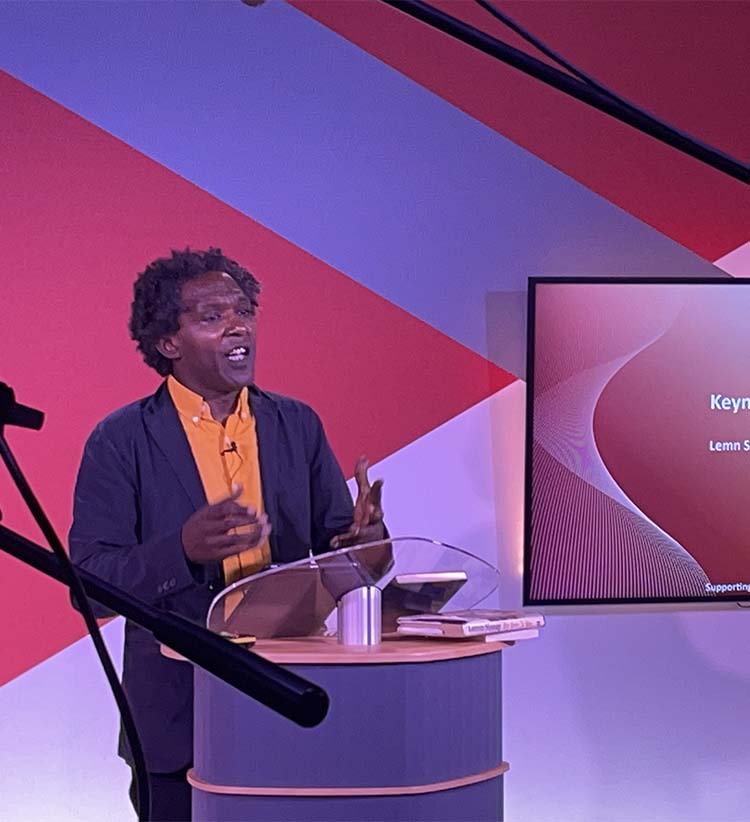
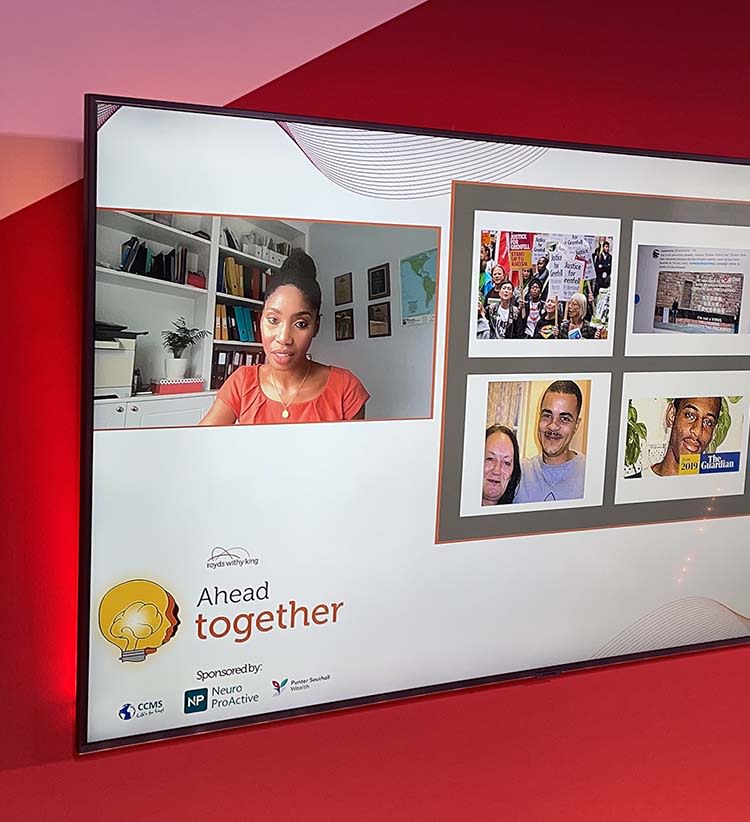
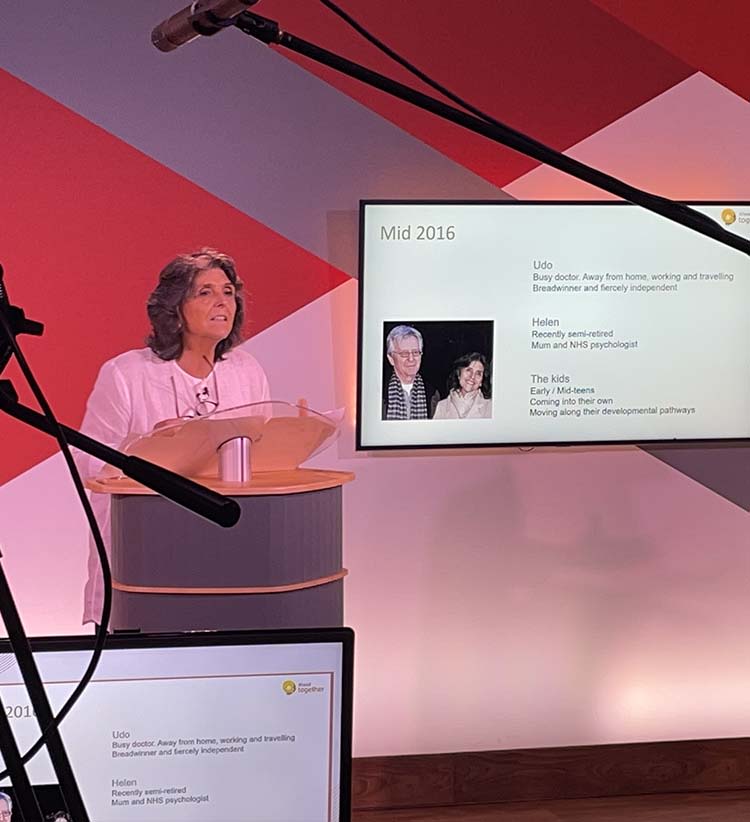
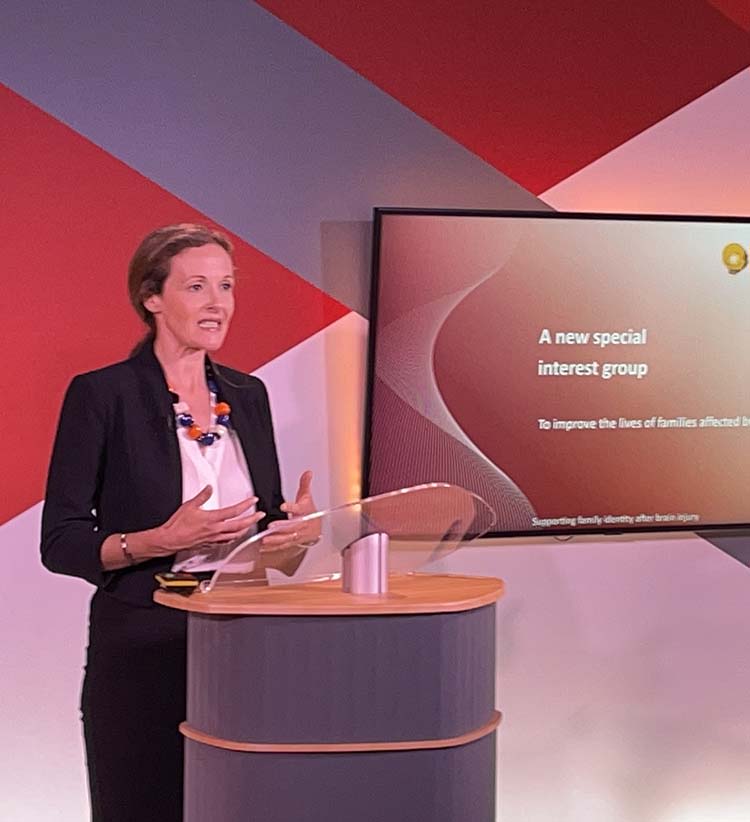
The Ahead Together Conference is an important event, and one I’d recommend to anyone.
Like most CPD events, attendees come away with some new knowledge and insights, perhaps a list of papers they want to read ‘when they have the time’.
More uniquely, I think attendees come away from an Ahead Together conference with a sense of connection, shared goals, and a sharper vision for the future – rather like good rehab.


